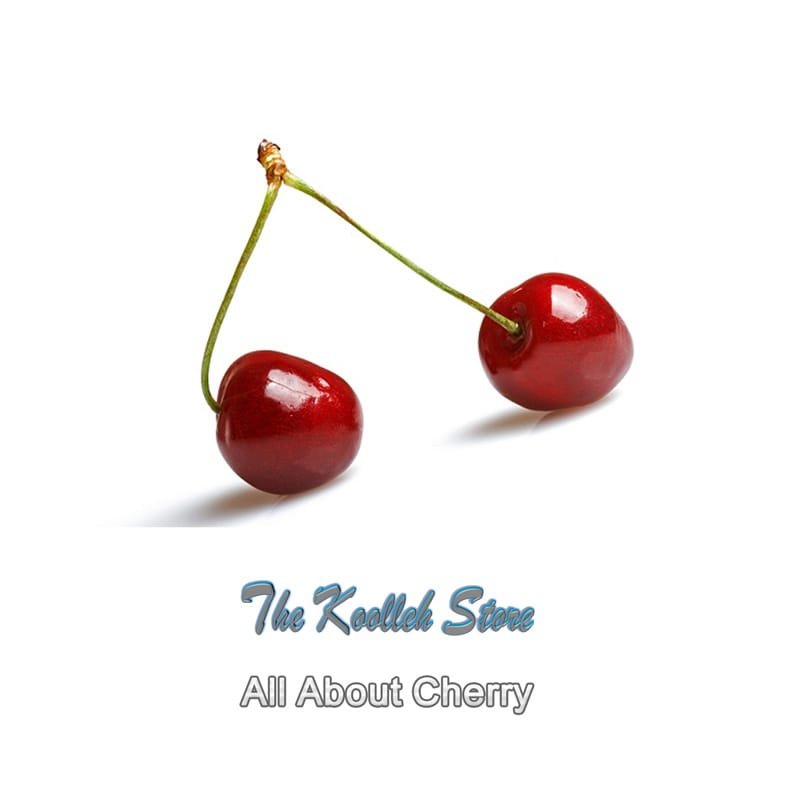All About Cherry

Cherry is the name of a tree and a fruit native to Southwest Asia and Europe (scientific name: Prunus cerasus). Its fruit is sour and red. Its height is 3 to 10 meters. Cherry has many properties, including its value in treating kidney inflammation, heart health, liver, stomach and intestinal disorders, as well as feverish illnesses. Brewed cherries have a diuretic effect and have long been valued for their value. Cherries are used to make cherry plum, cherry tart, cherry syrup and pickle cherries and one of the most popular liqueurs in the world of Vishnuoka and more.
Medicinal properties of cherries
Cherry is a very good appetizer.
The consumption of cherries reduces blood lipids, blood sugar and oxidative stress, which are the main causes of diabetes.
Cherries are useful for people with abdominal fat
Cherry is a thirst pain reliever and its syrup is the best medicine for people who are thirsty.
Berries are anti-nausea and anti-kidney stones.
The properties of the cherry and the cherry are similar and relax the nerves, but you should not overdo it.
Cherries are very useful for indigestion and softening fruits (laxative).
Drinking a glass of sugar-free cherry juice in the morning will help you sleep better at night. It contains significant amounts of melatonin, and melatonin is essential for a restful sleep.
Drinking cherry juice after exercise can relieve the pain of stretching muscles.
Cherry is a fruit that is extremely useful for heart and rheumatic patients and guarantees the beauty and freshness of women.
It is beneficial to eat cherries for warm temperaments.
It is effective for people who have itchy skin.
Cherry consumption calms the nerves, but it should not be overused.
Consuming a few days of syrup or cherry jam is useful for treating liver failure.
Cherry syrup or jam is effective in treating inflammation and kidney edema.
Cherries are useful for relieving heat and thirst and for blood and bile concentrations.
This fruit is potent and has a disinfectant effect on the intestines and also reduces gastritis.
Cherries are generally useful for the treatment of rheumatism, atherosclerosis, seizures, and toothache.
Due to the juiciness of the cherries, this fruit is useful for removing kidney stones and eliminating gallstones.
People who have rheumatism will have gout if they eat cherries.
Those who have heart disease because the cherry is diuretic potassium prevents the residual salt in the blood vessels and removes it from the urine, thereby helping the heart.
Women who want to have a bright complexion and look at the beauty of their faces should eat cherries to make their blood smooth.
Cherry consumption in pregnancy
Consuming balanced amounts of cherry and cherry is helpful during pregnancy and does not pose a problem for pregnant mothers, but it has not been shown to be safe from cherry brew and other uses.
Cherry consumption in diabetes
People with diabetes can eat as much as the average cherry because it is a sugar-sweetened type of sugar and can be absorbed by diabetic patients.
The results of one study show that consumption of cherry juice helps improve cardiovascular risk factors in patients with type 2 diabetes.
The consumption of cherries reduces blood lipids, blood sugar and oxidative stress, which are the main causes of diabetes.
Cherry consumption in breastfeeding
Cherries are one of the summer fruits that are hibiscus and in cases where they produce bloating they enter the milk and cause sore throat and bloating. To remedy this problem you can eat peppermint sweat after consuming fruit. Of course, peppermint sweat should be eaten when the compounds that produce bloating have not yet entered the milk.
Important Points in Choosing Cherries
A cherry is good to eat when ripe and fresh. The color of the handle is that it is perfectly red and radiant.
Avoid cherries that are not completely red in color and have a firm flesh because its consumption can induce digestion and disrupt intestinal function.
Cherries are old when they are dark and have brown spots and are corrupted.
Sometimes fruit sellers melt the cherries to make them look good, which destroys the cherries early and prepares them for decay sooner.
Disadvantages of cherry
Kidney patients should eat cherry with caution.
People who suffer from kidney disease and need to follow a low-potassium diet are advised to consume fruits such as cherries and avoid eating too much fruit.
Those who have swollen gut because the cherry is sour and cellulose is digested late.
Those with stomach or intestine can eat baked compote or jams, but in this case the cherry loses some of its vital nutrients, especially vitamins, but is easily digested. However, some who are gastric or intestinal can tolerate digestion of cherries as long as the morning fast is low enough.
People who are obese should not eat cherry as a dessert or extra food in addition to their diet, but as a staple food they can eat cherry because the cherry is low in calories and suppresses false appetite!
The decoction of the cherry brew is extremely diuretic and those who suffer from kidney or kidney or bladder disorders should consume it. To make this decoction you should boil 1 gram of dried cherry in 1 liter of water for 5 minutes and then use. In modern medicine, boiled cauliflower is also used to increase urine output.
The cherry kernel has good anti-inflammatory and astringent properties and is also anti-hypertensive.
Cherry balsam and balm are effective and useful for opening facial and face colors.
The brain crushes the cherry kernel and uses liquid oil that has been successfully healing rheumatism for centuries.
Consuming 2 grams of boiled cauliflower brew is useful for people with kidney and bladder diseases, soak the cherry brew in cold water for 3 hours then add in a liter of water and boil for one morning and noon and one night. Eat glasses of decoction.
Important warning on the consumption of cherries
Bitter cherry kernel is tasteful and contains toxic substance. Therefore, it should be avoided or carefully avoided when entering the fruit juice.
Due to the sensitivity of the GI in children, consumption of laxative fruits such as cherries and cherries by children under 3 years of age may cause diarrhea. On the other hand, because some of these fruits are harvested prematurely and still have toxic effects on them, digestion by the child’s digestive tract can be difficult and can lead to poisoning. It is good to know that as the fruit grows in the sun and the heat rises and the water is gradually washed away by rainfall and irrigation, the level of toxin exposure to the fruit will be lower and better digested.







Leave A Comment
You must be logged in to post a comment.